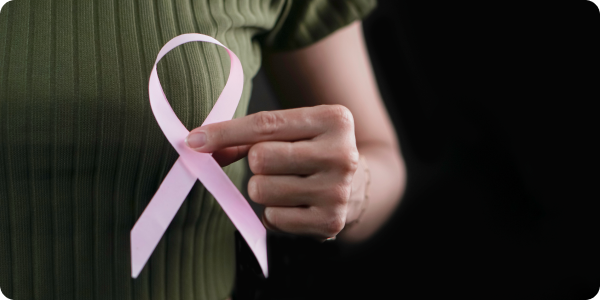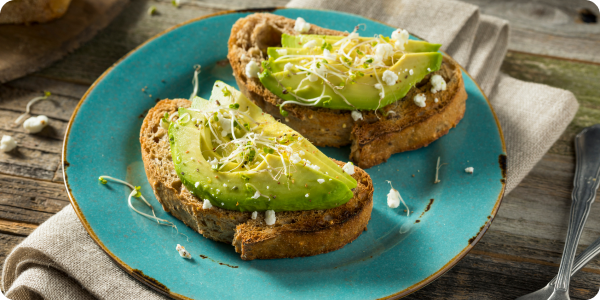
In the UK, 1 in 7 women will develop breast cancer within their lifetime and millions of women worldwide are affected. As with any medical problem, it is difficult to predict which individuals will go on to develop breast cancer but educating yourself about the risks and taking steps to prevent this gives you the best chance moving forward.
Hence, it is important to understand where the risk lies for you as some risk factors are not controllable:
- Gender.
- Having a family history of breast cancer and/or BRCA gene.
- Have your first period younger than average (before the age of 12).
- Late menopause.
- Higher breast density.
- Ageing.
However, research suggests that up to 30% of breast cancers are preventable through lifestyle modifications. This means the choices you make every day truly matter. Through healthier lifestyle choices in nutrition, physical activity, and regular checks, the risk can be minimised effectively.
Nutrition
One of the biggest areas in health that you can control is your nutrition. The food you eat helps fuel your body and can impact how you feel, as well as reduce your risk of cancer.
- Focus on Plant-Based Foods: A diet rich in fruits, vegetables, whole grains, and legumes provides your body with powerful nutrients that support breast health. Dark leafy greens like spinach and kale, cruciferous vegetables like broccoli and cauliflower, and fruit options like berries and tomatoes are packed with antioxidants and fibre that help protect your cells from damage.

- Choose Healthy Fats: While you should limit saturated fats found in red meat and full-fat dairy products, embrace healthy fats from sources like olive oil, avocados, nuts, and fatty fish such as salmon and mackerel. Omega-3 fatty acids, particularly those found in fish, have anti-inflammatory properties that may help reduce breast cancer risk.
- Limit Processed and Red Meat: Studies have linked high consumption of processed meats and red meats to increased cancer risk. This does not mean you need to cut meat entirely but consider reducing your portions and frequency. When you do eat meat, choose lean cuts and use healthier cooking methods like grilling, baking, or steaming rather than frying.
- Minimise Alcohol Consumption: The connection between alcohol and breast cancer risk is well-established. Even moderate drinking can increase your risk. If you choose to drink, limit yourself to no more than one drink per day. Better yet, consider reducing your alcohol intake or avoiding it altogether.
- Stay Hydrated and Limit Sugary Drinks: Sugary drinks are best avoided when looking out for your health as they do not have any nutritional valve. It is recommended that water should be your primary drink of choice and if you would like a sugary drink then you can do so occasionally. Alternatively, green tea is an excellent option as it is known for its anti-inflammatory properties.

Lifestyle Factors
Maintain a Healthy Weight
Being overweight or obese, particularly after menopause, increases breast cancer risk. This is because excess body fat produces oestrogen, and higher oestrogen levels are linked to certain types of breast cancer. However, focus on gradual, sustainable weight loss through balanced eating and regular physical activity rather than crash diets.
Prioritise physical exercise:
Regular physical activity is one of the most powerful tools for breast cancer prevention. Aim for at least 150 minutes of moderate-intensity exercise or 75 minutes of vigorous exercise each week. This could be brisk walking, swimming, cycling, dancing, or any activity that gets your heart pumping. Exercise helps control weight, reduces inflammation, and regulates hormones—all factors that influence breast cancer risk. Even if it is just a 10-minute walk and then you gradually increase, this will be beneficial. Find activities you enjoy so exercise becomes something you look forward to rather than a chore.

Quit Smoking
If you smoke, quitting is one of the best things you can do for your overall health, including reducing your breast cancer risk. The link between smoking and breast cancer is particularly strong in premenopausal women and those with a family history of the disease. Talk to your healthcare provider about smoking cessation programs and support.
Breastfeed If Possible:
For women who have children, breastfeeding for several months or longer has been associated with reduced breast cancer risk. The longer you breastfeed, the greater the protective effect appears to be.
Be Cautious with Hormone Therapy
If you are considering hormone replacement therapy for menopausal symptoms, discuss the risks and benefits thoroughly with your doctor. Combination hormone therapy (oestrogen plus progestin) has been linked to increased breast cancer risk.
Regular Screening
While lifestyle changes can reduce your risk, they do not eliminate it entirely. Regular breast cancer screening remains crucial for early detection. If you are between the ages of 50 and 70, you will be invited for your routine breast screening. Likewise, get comfortable with your body and perform monthly breast self-exams and report any changes to your doctor promptly. The best time to do a self-check is in the shower every few months.

Conclusion
Taking steps to reduce your breast cancer risk empowers you to be proactive about your health. By nourishing your body with wholesome foods, staying physically active, maintaining a healthy weight, and avoiding harmful substances, like smoking, you are investing in your long-term wellbeing. Every positive choice you make contributes to a healthier you—and that is something worth celebrating.
If breast cancer is something you are concerned about then please contact your local healthcare provider for further medical advice.










